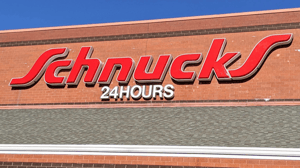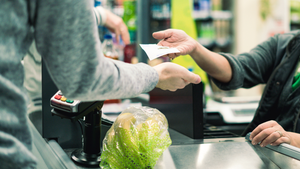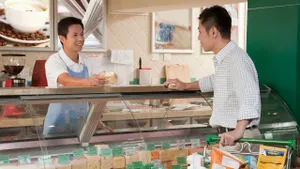Whole Foods Market turns spotlight on responsible sourcing
Sourced for Good program puts special seal on certified sustainable products
April 7, 2021

Whole Foods Market is making responsible sourcing stand out at the shelf.
The Amazon-owned specialty grocer on Wednesday launched Sourced for Good, an exclusive third-party certification program through which customers can identify responsibly sourced products, which bear a special “Whole Foods Market - Sourced for Good” seal.
So far, the Sourced for Good seal can be found on more than 100 products, Austin, Texas-based Whole Foods said. Along with produce offerings ranging from asparagus to zucchini, the Sourced for Good program includes seafood, such as Del Pacifico wild-caught shrimp from Mexico, as well as domestically sourced items like tulips from Bloomia in Virginia and Sun Valley Floral Farms in California.
The addition of new third-party-certified commodities will allow the program to benefit more farms and producers, workers and their communities going forward, the retailer noted.
“Our Sourced for Good products not only are good, they do good,” Karen Christensen, senior vice president of merchandising for perishables at Whole Foods, said in a statement. “Our commitment to equitable trade has funded numerous community projects, from dental clinics to housing facilities to student scholarships to bird sanctuaries. By purchasing select products, customers help us in our goal to make a difference.”

A Harris poll for Whole Foods found that 81% of U.S. adults would like a convenient way to see if an item is responsibly sourced.
Whole Foods said its Sourced for Good program includes products certified by internationally recognized organizations such as Fair Trade USA, the Rainforest Alliance, Fairtrade America, the Fair Food Program and the Equitable Food Initiative.
In an online survey of more than 3,000 U.S. adults last month, conducted by The Harris Poll for Whole Foods, 75% of respondents said it’s important to know if products are responsibly sourced when they’re grocery shopping. At the same time, 65% of shoppers polled expressed confusion about how to determine if a product is sourced responsibly, and 81% would like a convenient way to see if an item comes from a responsible source.
“With Sourced for Good, we’re offering shoppers an easier way to find these special products in our stores,” Christensen added.
Sourced for Good builds on and will replace Whole Foods Market’s Whole Trade Guarantee, the retailer said. In 2007, Whole Foods began working with trusted third-party certifiers under its Whole Trade Guarantee to make a measurable, positive impact and generate millions of dollars a year to support farmworkers, their communities and environmental stewardship in the production of agricultural products.
Overall, Whole Foods Market operates 502 stores in the United States, 14 in Canada and seven in the United Kingdom.
Read more about:
AmazonAbout the Author
You May Also Like






